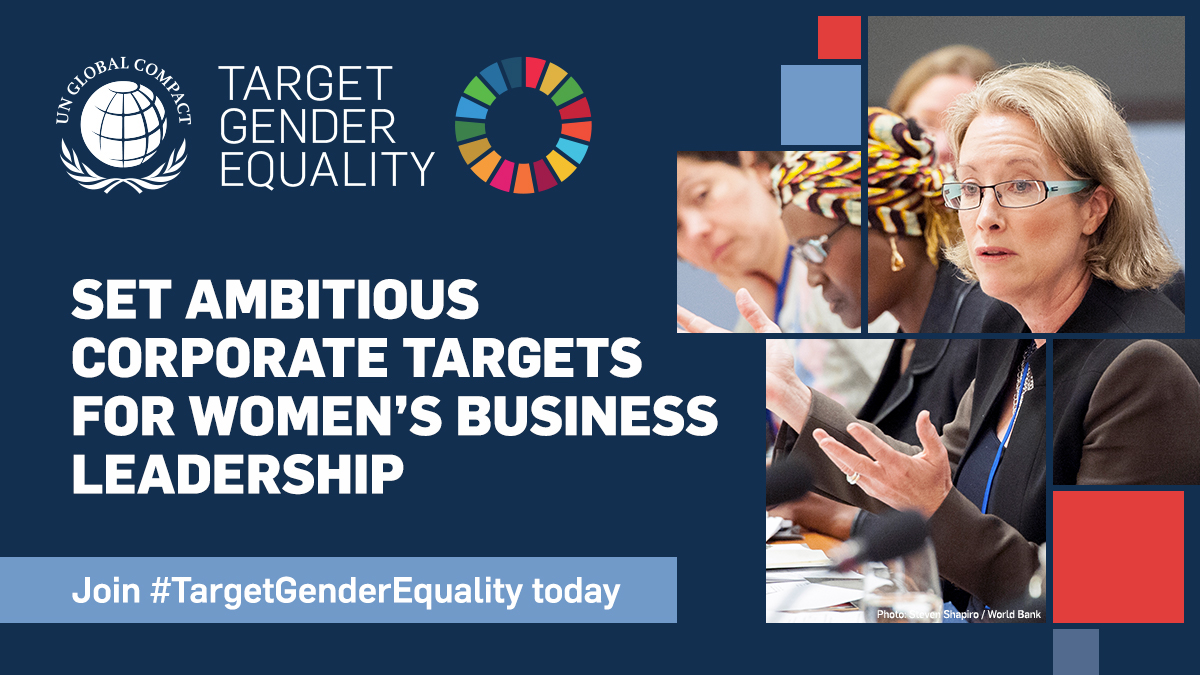Santander Spain signs on to the United Nations Global Compact's gender equality programme


Signatory entities commit to setting and meeting ambitious targets to increase women's leadership in business in line with Target 5.5 of Agenda 2030.
Santander already tops the 2020 Bloomberg Gender-Equality Index, which consists of such parameters as pay equality, gender parity, integration, and women's talent and leadership.

Madrid, 10 June 2020 – Santander Spain has signed on to the Target Gender Equality (TGE) programme launched in 19 countries by the United Nations Global Compact with the goal of increasing women's representation on company boards and in executive management positions. The programme arose from the need for faster progress in urgent aspects of gender equality in business. Despite the private sector's commitment to this Sustainable Development Goal – 79% of Spanish companies participating in the Global Compact, including Banco Santander, indicated last year that gender equality was being addressed in their corporate policies – progress remains slow. It is estimated that at the current rate of progress it will take more than 250 years to achieve full equality between women and men.
Promoting an inclusive, diverse workplace is already part of Banco Santander's culture and values. Evidence of this is that women make up 40% of its board and 55% of the Group's headcount. The bank's diversity and inclusion principles set minimum standards in Santander's various markets and have been incorporated into the culture policy approved by the its board of directors. The standards aim to achieve impartial and inclusive processes, systems, tools and policies as well as talent management and pay equality.
The Target Gender Equality programme
During the life of the United Nations Global Compact programme, until March 2021, it will support participating Member States in setting and achieving ambitious targets for women's representation and leadership at all levels through a performance analysis, workshops on capacity building, peer learning, and dialogue with multiple stakeholders nationally and internationally.
Participating companies undertake to assess their gender equality performance, set ambitious corporate targets and take measures to address gender equality barriers, both internally and in their broader sphere of influence. Indeed, the bank has already publicly committed to increasing the percentage of women in senior management positions from the current 22% to 30% and to attaining pay equality by 2025.
The bank also has initiatives in place to support corporate diversity, including funds to support women-led SMEs, training and networking opportunities, marketing campaigns and support for women entrepreneurship.
One such initiative is the “Reencuentra" programme, which aims to help women who have given up their professional careers for family reasons to return to the job market at companies in their fields, especially those who are having a hard time finding an opportunity. The programme aims to raise society’s awareness of the difficulty these women face in re-entering the job market after years devoted to childcare and includes a temporary assignment at Santander as well as a series of training, coaching and mentoring actions to create value and increase their employability. One hundred women are taking part in this first edition. The first 15 started their assignments in March and the rest joined this week.
Bloomberg Gender-Equality Index
Underscoring the bank's commitment to equality and women's progress in the labour market, Banco Santander now tops the 2020 Bloomberg Gender-Equality Index. The index was compiled by evaluating 6,000 companies in 84 countries. In the end, 325 companies were included. The evaluation was composed of 75 metrics in five areas: female leadership and talent pipeline, equal pay and gender pay parity, sexual harassment policies, and pro-women brand.
In 2019, Santander was also recognised as the most sustainable bank in the world by the Dow Jones Sustainability Index, and it signed on to the United Nations Women's Empowerment Principles.
The Spanish Network of the Global Compact
In Spain, the United Nations Global Compact operates through the Spanish Network, with 1,603 entities that have signed on to this corporate social responsibility initiative. Of these participants, 22% are large companies, 61% are SMEs and 17% are other types of entities (third sector, business associations and educational institutions). The network aims to encourage signatories to implement the Ten Principles of the Global Compact in order to promote business sustainability and to work with companies and the private sector toward achieving the Sustainable Development Goals.
Banco Santander
Banco Santander (SAN SM, STD US, BNC LN) is a retail and commercial bank founded in 1857 and headquartered in Spain. It has a significant presence in 10 core markets in Europe and the Americas, and is one of the world's largest banks by market capitalisation. Its purpose is to help people and businesses prosper by doing things in a Simple, Personal and Fair way. Santander is making progress in responsible banking, and to this end has set several objectives, including providing more than €120 billion in green financing between 2019 and 2025 and extending financial inclusion to more than 10 million people in the same period. At the end of the first quarter of 2020, it had €1 trillion in total customer funds, 146 million customers (including 21.3 million loyal and 38.3 million digital), 11,900 branches and 195,000 employees. In the same quarter, Banco Santander's underlying attributable profit stood at €1.977 billion, a 1% year-on-year increase.

